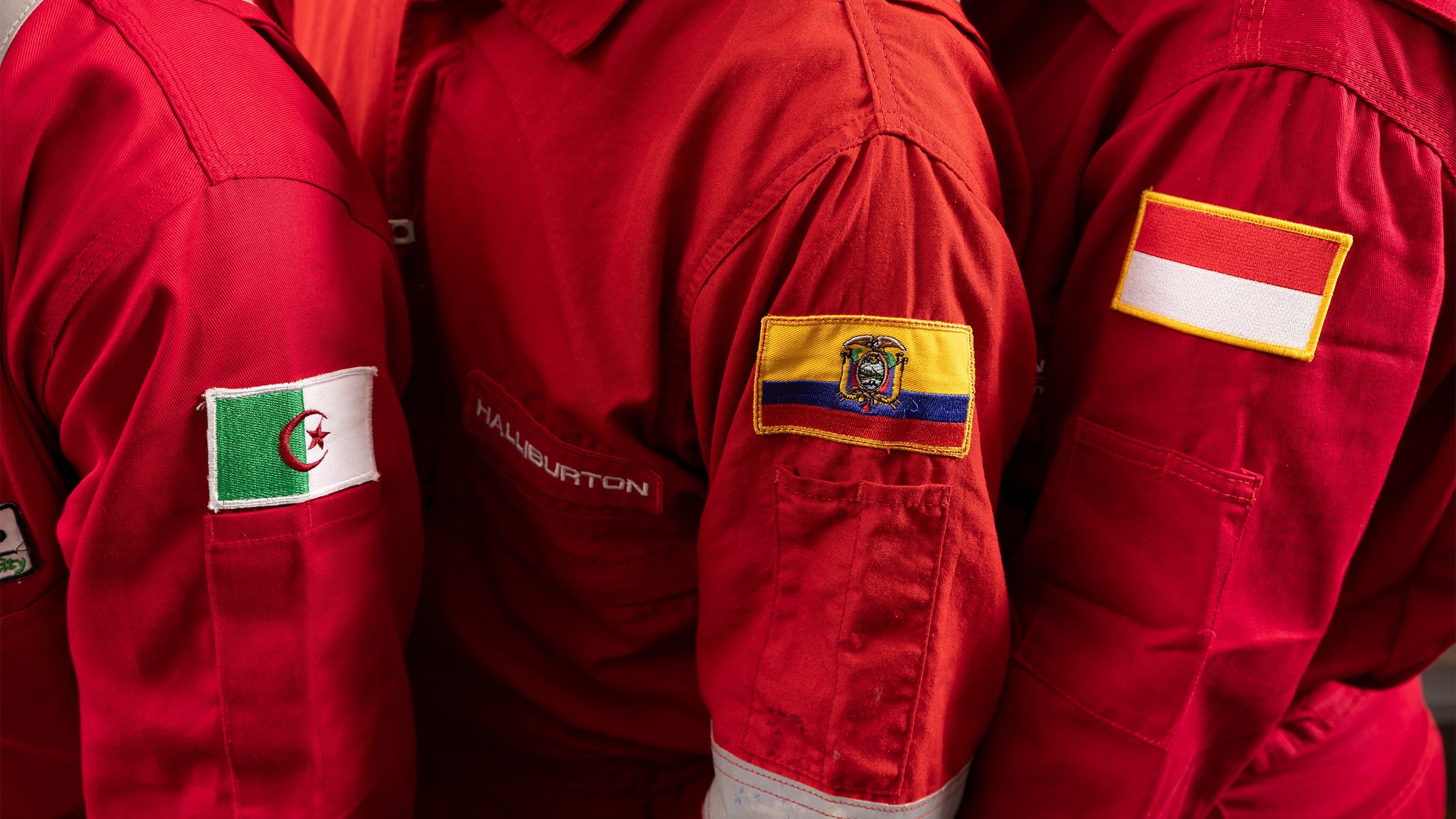 Search
Search
 Search
Search

Halliburton works with suppliers who share our commitment to integrity and ethical business practices. We use a standard approach to screen suppliers and measure their compliance with our rules, terms, and conditions. We also review and monitor our current suppliers' practices to confirm they comply with Halliburton's policies.
Learn more about our Supplier Management System, procurement policies, modern slavery and trafficking prevention, conflict minerals, and supplier compliance on the Supplier Relations page of the Halliburton website.
Chapters:
Anti-Bribery, Anti-Corruption, and Fair Competition
Supply Chain Governance
Cultivate a sustainable supply chain through the continuous improvement of internal processes, by performing proactive risk assessments, and by working collaboratively with our diverse mix of global and local suppliers.
Halliburton knows effective due diligence of our supply chain is essential to build and maintain sustainable operations. Halliburton's work to select and qualify suppliers includes evaluations of their sustainability commitments and how they respond to evolving legislation. We expect our suppliers to improve with us in sustainability matters and encourage them to track their sustainability performance and proactively pursue continuous improvement.
We also promote sustainable value chains in the energy industry through collaborations with our industry counterparts. These collaborations include our active involvement in International Petroleum Industry Environmental Conservation Association (IPIECA) working groups. Our collaborations help shape industry guidance and best practices for ethical, responsible, and sustainable supply chains.
We use our Supplier Ethics Letter and Supplier Ethics Statement to communicate ethical expectations to our suppliers. In 2024, we implemented new Supplier Sustainability Principles that include provisions on business ethics, human rights, and HSE. The expansion of these Principles complements Halliburton's existing COBC, Supplier Ethics Letter, and Supplier Ethics Statement and helps reinforce our expectations for suppliers with regard to sustainability and responsible business conduct. Halliburton's contracted suppliers must commit to protect and uphold the fundamental human rights of their employees as defined by the UN Universal Declaration of Human Rights.
Halliburton also takes measures to assess and mitigate supplier-related risks. Our risk-assessment methodology includes evolving international legislation on sustainable and responsible supply chains and human rights. In the course of risk assessment we consult international standards such as the UN Guiding Principles for Business and Human Rights and The Organization for Economic Co-operation and Development Due Diligence Guidance for Responsible Business Conduct. During onboarding, we require potential suppliers to engage in a risk-evaluation process facilitated by our procurement system. We assess suppliers based on relationship, category, and geography to determine which risk levels to assign. Depending on each supplier's risk level, we then collect information such as insurance documentation and safety risk assessments or conduct screenings for export controls.
Our high-risk supply chain due diligence initiatives are supported by our cloud-based supply chain monitoring platform, which we further developed and strengthened in 2024. The platform streamlines supplier risk assessment and monitoring and supports our engagement with supply chain partners on sustainability issues, corrective action plans, and vendor progress on commitments. We collect and analyze supplier data to pinpoint risks and prioritize follow-up actions.
If a supplier is found to be noncompliant with Halliburton's standards, our response actions can lead to supplier termination. Visit Chapter P4 Human Rights to read more about Halliburton's Human Rights policies.
Halliburton promotes awareness about supply chain matters through meetings, workshops, and training sessions, and by connecting with suppliers on digital sustainability platforms. We offer training on sustainable supply chain practices to employees and suppliers to enhance organizational knowledge.
We conduct periodic Supply Chain Sustainability Awareness sessions for supply chain employees worldwide. These sessions cover topics like the UN Sustainable Development Goals (SDGs), the UN Guiding Principles on Business and Human Rights, modern slavery, and local content. We also assign global sustainability awareness training that addresses corporate sustainability topics beyond the supply chain to all Halliburton employees.
In 2024, Halliburton expanded the IPIECA Forced Labor Training for employees through the Supply Chain Sustainability School. This collaboration enables sustainability training for employees and suppliers on topics that include modern slavery, ethical procurement, and environmental protection.
Halliburton draws strategic and competitive operational advantages from its strong, established relationships with local suppliers. As we support them, we help expand national and local suppliers' capacities and competencies, promote positive labor practices, and stimulate local economies. We collaborate with governments and customers worldwide to meet local content targets and contribute to the economic development of the regions where we operate.
Sustainability means serving our customers, employees, stakeholders, and communities in an environmentally, socially, and ethically responsible way.
Globally, oil and gas remain critical sources of energy and will play essential roles in the world's pursuit of a lower-carbon future.
Our people are the heart of everything we do at Halliburton. The success of our operations is a result of the dedication of our exceptional employees, leaders, contractors, and suppliers.
VIEW PEOPLE